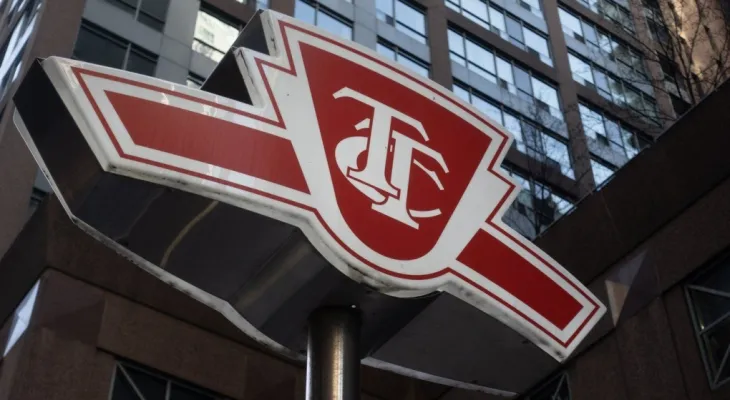Search here
Newspaper
Search here

Arab Canada News
News

Published: June 4, 2024
The union representing thousands of TTC front-line employees said that little progress has been made in negotiations, with only a few days remaining before the strike deadline, and they are advising people to plan alternate means of getting around.
Marvin Alfred, president of Local 113 of the Amalgamated Transit Union (ATU), told CP24 on Monday: "We are still at the bargaining table, but unfortunately, we haven't made the progress we need to avoid a strike."
"Unfortunately, due to our inability to make the necessary progress to avoid a strike, yes, people should prepare for the withdrawal of our services on Friday."
Local 113 ATU members have been without contracts since March 31. The union represents about 11,500 operators, collectors, maintenance workers, station staff, and other front-line TTC employees.
Last month, they voted overwhelmingly in favor of a strike mandate.
John De Nino, the national president of the Communications Workers of America (CWA), warned on Friday of a "complete disruption" of transit service in Toronto if an agreement is not reached.
However, city officials, including TTC Chair Jamey Myles and Mayor Olivia Chow, said they remain optimistic that an agreement can still be reached. They noted that bargaining will continue through the weekend.
The transitional committee stated on Monday that the parties are still at the table and talks are ongoing, but there are no developments to report.
Alfred mentioned that job security is a sticking point: "Job security is of paramount importance. There is no alternative to enjoying that security of being able to predict that you have a job with TTC and being able to protect and secure benefits for your family."
He stated that "some progress" has been made but nothing is written down and the workers are "frustrated."
However, speaking to CP24 on Monday, TTC Chair Jamey Myles said he remains optimistic that an agreement will be reached.
Myles explained, "We expect negotiations to continue until the last moment, which is typical for this kind of bargaining. But we are confident that things are headed in the right direction."
He confirmed that job security, wages, and benefits remain key issues on the bargaining table.
Myles said, "We are working with the union to see how we can best meet their needs while also staying within the mandate given by the city and the TTC Board."
He added that the general direction of the conversation remains positive and emphasized that TTC has managed to strike deals with three of its six unions so far.
Negotiations continue this week, and workers may go on strike on Friday if no agreement is reached.
This would be the first transit strike the city has seen since 2008, thanks to a provincial law that classified TTC as an essential service for years. Last year, an Ontario court struck down the law, opening the door for strike action after the last agreement expired.
Speaking with CTV Toronto on Monday, Vincent Buhaika, from the TTC Riders advocacy group, said a public transit strike would affect the entire city, not just those who use public transportation.
Buhaika said, "Toronto is entirely dependent on its transit system. Even if you never step onto a bus or subway, you benefit from the transportation that exists in this city, and traffic will be a nightmare. Many people can't even afford to drive, so they won't be able to get where they need to go."
He noted that although his group is not a party to the discussions, they see the city as the side that needs to budge more.
"While the union and the city aren't telling us exactly what is being discussed right now, we know historically that TTC has not been invested in, so it seems to fall to this party, you know, to bend a little more."
Buhaika stated that the deals reached with some of the other unions representing TTC workers are encouraging.
He added, "Looking at last year, we had other local unions working at TTC, and negotiations reached their conclusion, allowing them to avoid a strike. Clearly, riders want this trend to continue. We do not want service disruptions; a strike would be a disaster."
He urged people to contact their elected officials to encourage them to "negotiate fairly" with the union.
Comments